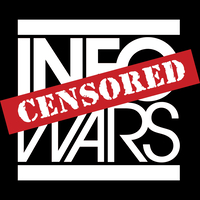Jan. 6th Political Prisoners Persecuted For Supporting Trump In 2024, D.C. Journalist Reports https://madmaxworld.tv/watch?id=660b3251b0f994f1e4db10f6
People
Circles
Posts
‘Major Win’ – Amish Farmer Persecuted By Feds Can Now Sell Raw Milk Out-of-State https://www.infowars.com/posts/major-win-amish-farmer-persecuted-by-feds-can-now-sell-raw-milk-out-of-state/
Trudeau SHOT DOWN By Judge Over Persecuted Truckers!
#politics #canada #canadian #war #NATO #political #Europe #Turkey #deals #news #worldnews #weapons #intrigue #USA #war #weapons #nuclear #nuclearwar #taxes #taxdollars #waste #theft #Ukraine #UnitedStates #Nazis #LiberalParty #NDP #fascists #fascism https://rumble.com/v4hg6b2-trudeau-shot-down-by-judge-over-persecuted-truckers-w-gordon-magill.html
Videos
People
Circles
Videos
Posts
Jan. 6th Political Prisoners Persecuted For Supporting Trump In 2024, D.C. Journalist Reports https://madmaxworld.tv/watch?id=660b3251b0f994f1e4db10f6
‘Major Win’ – Amish Farmer Persecuted By Feds Can Now Sell Raw Milk Out-of-State https://www.infowars.com/posts/major-win-amish-farmer-persecuted-by-feds-can-now-sell-raw-milk-out-of-state/
Trudeau SHOT DOWN By Judge Over Persecuted Truckers!
#politics #canada #canadian #war #NATO #political #Europe #Turkey #deals #news #worldnews #weapons #intrigue #USA #war #weapons #nuclear #nuclearwar #taxes #taxdollars #waste #theft #Ukraine #UnitedStates #Nazis #LiberalParty #NDP #fascists #fascism https://rumble.com/v4hg6b2-trudeau-shot-down-by-judge-over-persecuted-truckers-w-gordon-magill.html
Brighteon Broadcast News, Feb 17, 2024 - Trump persecuted by LAWLESS tyrants; Adveevka falls as Ukraine's troops ROUTED
https://www.brighteon.com/d8dad7a8-6080-46c0-b4a4-e21268881f03

- Trump's legal issues and political persecution. (0:03)- Race, gender, and politics in America. (5:30)- Ukraine-Russia war, US involvement, and impending defeat. (10:49)- US-Ukraine conflict, economic collapse, and spiritual awakening. (15:58)- US leadership, climate change, and mental illness. (22:09)- Climate change, environmental justice, and woke ideology. (27:20)- Survival supplies and nutrition during societal collapse. (32:47)- Organic, lab-tested instant meals and superfoods. (38:44)For more updates, visit: http://www.brighteon.com/channel/hrreport NaturalNews videos would not be possible without you, as always we remain passionately dedicated to our mission of educating people all over the world on the subject of natural healing remedies and personal liberty (food freedom, medical freedom, the freedom of speech, etc.). Together, we’re helping create a better world, with more honest food labeling, reduced chemical contamination, the avoidance of toxic heavy metals and vastly increased scientific transparency.▶️ Every dollar you spend at the Health Ranger Store goes toward helping us achieve important science and content goals for humanity: https://www.healthrangerstore.com/ ▶️ Sign Up For Our Newsletter: https://www.naturalnews.com/Readerregistration.html ▶️ Brighteon: https://www.brighteon.com/channels/hrreport ▶️ Join Our Social Network: https://brighteon.social/@HealthRanger ▶️ Check In Stock Products at: https://PrepWithMike.com 🔴 Brighteon.Social: https://brighteon.social/@HealthRanger 🔴 Gettr: https://gettr.com/user/naturalnews 🔴 Gab: https://gab.com/NaturalNews 🔴 Bitchute: https://www.bitchute.com/channel/naturalnews 🔴 Rumble: https://rumble.com/c/HealthRangerReport 🔴 Mewe: https://mewe.com/p/naturalnews 🔴 Spreely: https://social.spreely.com/NaturalNews 🔴 Telegram: https://t.me/naturalnewsofficial 🔴 Pinterest: https://www.pinterest.com/realhealthrangerstore/
www.brighteon.com
Brighteon Broadcast News, Feb 17, 2024 - Trump persecuted by LAWLESS tyrants; Adveevka falls as Ukraine's troops ROUTED
https://www.brighteon.com/d8dad7a8-6080-46c0-b4a4-e21268881f03

- Trump's legal issues and political persecution. (0:03)- Race, gender, and politics in America. (5:30)- Ukraine-Russia war, US involvement, and impending defeat. (10:49)- US-Ukraine conflict, economic collapse, and spiritual awakening. (15:58)- US leadership, climate change, and mental illness. (22:09)- Climate change, environmental justice, and woke ideology. (27:20)- Survival supplies and nutrition during societal collapse. (32:47)- Organic, lab-tested instant meals and superfoods. (38:44)For more updates, visit: http://www.brighteon.com/channel/hrreport NaturalNews videos would not be possible without you, as always we remain passionately dedicated to our mission of educating people all over the world on the subject of natural healing remedies and personal liberty (food freedom, medical freedom, the freedom of speech, etc.). Together, we’re helping create a better world, with more honest food labeling, reduced chemical contamination, the avoidance of toxic heavy metals and vastly increased scientific transparency.▶️ Every dollar you spend at the Health Ranger Store goes toward helping us achieve important science and content goals for humanity: https://www.healthrangerstore.com/ ▶️ Sign Up For Our Newsletter: https://www.naturalnews.com/Readerregistration.html ▶️ Brighteon: https://www.brighteon.com/channels/hrreport ▶️ Join Our Social Network: https://brighteon.social/@HealthRanger ▶️ Check In Stock Products at: https://PrepWithMike.com 🔴 Brighteon.Social: https://brighteon.social/@HealthRanger 🔴 Gettr: https://gettr.com/user/naturalnews 🔴 Gab: https://gab.com/NaturalNews 🔴 Bitchute: https://www.bitchute.com/channel/naturalnews 🔴 Rumble: https://rumble.com/c/HealthRangerReport 🔴 Mewe: https://mewe.com/p/naturalnews 🔴 Spreely: https://social.spreely.com/NaturalNews 🔴 Telegram: https://t.me/naturalnewsofficial 🔴 Pinterest: https://www.pinterest.com/realhealthrangerstore/
www.brighteon.com









